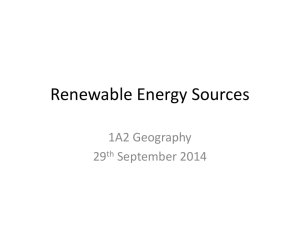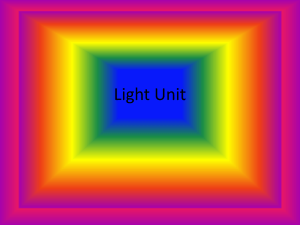Green” in Germany without Going “Red”
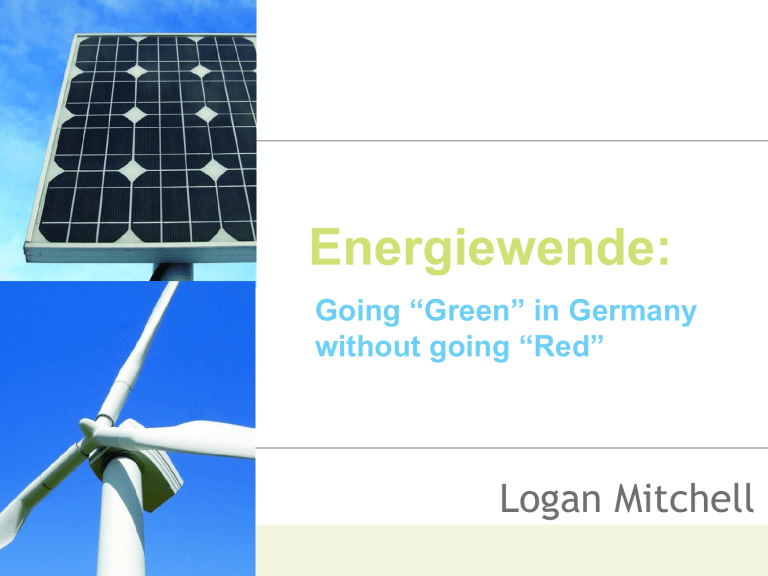
Energiewende:
Going “Green” in Germany without going “Red”
Logan Mitchell
Why Renewable Energy?
Thesis
Such a bold energy transition will force Germany to import energy—at least in the short term—from outside sources in Africa, the Middle East, and even neighboring European countries, which could possibly expose Germany to the threat of energy as a weapon from an organization comparable to OPEC and Russia.
Gross Electricity Production
Germany 2012
16%
23%
44%
25% 19%
12%
5%
Total 629 billion kWh
Natural gas Other Renewable sources Nuclear Brown coal Hard coal
Source: Statistisches Bundesamt, https://www.destatis.de/DE/ZahlenFakten/Wirtschaftsbereiche/Energie/Energie.html
Energiewende Goals
Set forth by German Federal Government
• 2022: Shut down all nuclear power plants
• 2020: Greenhouse gas emissions reduced by 40% (vs. 1990)
• 80-95% by 2050
• Increased reliance on renewable energies
• decrease natural gas, coal, and other fossil fuels
• Technology expansion for use/production of renewable energies
• Desertec?
• 2050: Overall decrease in energy consumption by 25%
Source: German Federal Ministry for the Environment, Nature Conservation, and Nuclear Safety
Why is Germany doing this?
Nuclear Energy is unsafe.
Daiichi
Nuclear plant disaster in
Fukushima,
Japan after
Earthquake +
Tsunami
Image Source: Japan Daily Press
Why is Germany doing this?
Protect the future of our planet
• No nuclear plants no nuclear accidents
• Reduced reliance on coal
• Sustainable and renewable energy reduce greenhouse gas emissions
• New energy sectors creates more jobs
• subsidies have helped create over 370,000 in last 20 years in Germany
• New technologies created bolster Germany’s exports
• Economic boom
• West/South Germany has lots of investors
• North Germany (esp. Eastern) has prime wind farm locations; South – solar farms
How will Germany accomplish this?
New technologies and Governmental Policies
• Subsidies for both organizations and individuals
• No nuclear higher short-term reliance on coal
• Imports in short- and long-term
• France and Czech – short-term (nuclear)
• Africa and Middle East (Desertec) – long-term (renewables)
• More wind/solar farms in
Germany
Desertec and Energy as a weapon
Desertec Foundation – non-profit for a sustainable future
• Desertec Foundation itself is harmless
• Honest advocates for sustainable, renewable energy
• International cooperation from multiple companies
Images source: www.desertec.org
Desertec and Energy as a weapon
Desertec Foundation – non-profit for a sustainable future
• Desertec Foundation itself is harmless
• Honest advocates for sustainable, renewable energy
• International cooperation from multiple companies
• Advanced technologies
(transport, production, storage)
• High-Voltage Direct Current (HVDC) transmission
• Concentrating Solar-thermal Power (CSP) plants
• Success already seen in Tunisia (TuNur) and
Almeria, Spain (Andasol)
Images source: www.desertec.org
Desertec and Energy as a weapon
What happens during conflict?
• Outsourced energy can potentially be cut off
• EU can be bullied by African and Middle Eastern countries
• like Russia to Ukraine in 2006 and 2009
• Power plants could be targets for attacks to damage EU
• Pipelines can be cut/destroyed, perhaps even by malicious groups
• Accidental damage
• Terrorist organizations
• Rebel armies
Image source: www.desertec.org
Desertec and Energy as a weapon
How much potential is there for an energy weapon?
• Technology and production is spread out—decentralized
• difficult to cut off all sources, only squeeze supply
• Producers have potential to form OPEC-like group
• OREEC?
• Unsold energy (especially thermal) is wasted energy
• Renewable energy is theoretically unlimited, so price gouging is practically non-existent; ensures competition in marketplace
• Mutual dependency helps avoid potential conflict
Conclusion
Speculation
• Renewable energy imports from Desertec Foundation sources will be helpful in the short-term, but can and will eventually create problems, causing unrest in the energy sector
• Germany will build and produce more in-house renewable energy sources, while also using imported sources as a supplement/cost offset.
Questions?
Image source: www.desertec.org
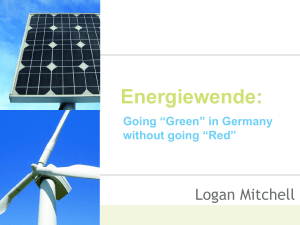
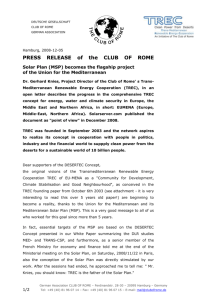
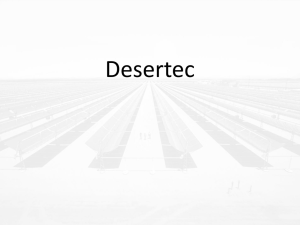
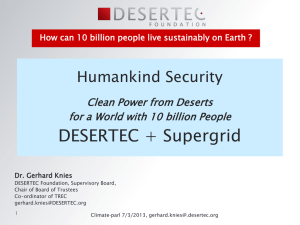
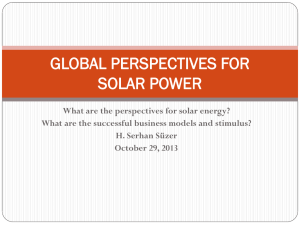
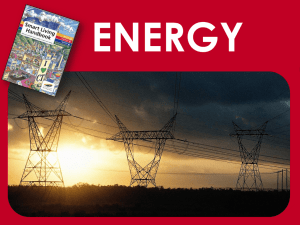
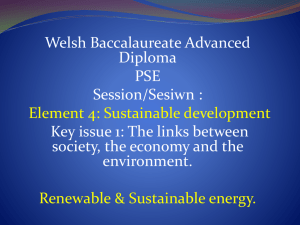

![The Politics of Protest [week 3]](http://s2.studylib.net/store/data/005229111_1-9491ac8e8d24cc184a2c9020ba192c97-300x300.png)

